Safari Facts
- Home
- Safari Facts
- lls
General Safari Information
The best time depends on your interests:
June–October: Peak season for wildlife viewing and the Great Migration crossings.
November–March: Lush landscapes, abundant migratory birds, and the calving season in Ndutu.
Our classic Northern Circuit safaris include Serengeti, Ngorongoro Crater, Tarangire, and Lake Manyara. Optional extensions may feature Lake Natron, Arusha National Park, and cultural experiences with local communities.
Short safaris (3–4 days): Ideal for exploring Ngorongoro and Tarangire.
Medium safaris (6–10 days): Allow a fuller experience including the Serengeti.
Long safaris (12+ days): Combine multiple parks with cultural experiences and beach extensions.
Our safaris are private and fully tailored for solo travelers, couples, families, or groups. Safari vehicles comfortably seat 4–7 guests, with guaranteed window seating for every passenger.
Yes. We strongly recommend comprehensive travel insurance that covers medical evacuation, trip cancellations, and personal belongings to ensure peace of mind throughout your safari.
Absolutely! Many lodges and camps are family-friendly, offering activities for children. However, some remote or luxury camps may have age restrictions for safety reasons.
- LLS
Safari Experience
You can expect to encounter lions, elephants, giraffes, zebras, wildebeest, and more. With some luck, you may also spot cheetahs, leopards, rhinos, and African wild dogs. Birdlife is equally spectacular, with over 1,000 species to admire.
The Great Migration is the world’s largest movement of wildebeest and zebras, spanning the Serengeti in Tanzania and the Maasai Mara in Kenya. It’s a year-round cycle, with dramatic river crossings occurring from July–October and the calving season taking place in Ndutu between January–March.
Yes! Northern Tanzania offers excellent opportunities to spot the Big Five—lion, leopard, elephant, buffalo, and rhino—particularly in Ngorongoro Crater and the Serengeti.
Absolutely. Our expert guides prioritize safety at all times. Safari vehicles are well-maintained, and all lodges adhere to strict safety protocols to ensure a secure and worry-free experience.
Most safari days start early with a morning game drive, which is ideal for spotting predators. Afterward, you return for lunch and may embark on an afternoon or evening drive. In selected areas, night game drives and guided walking safaris are also available for a closer encounter with the wilderness.
Absolutely! We organize Maasai village visits, Hadzabe hunter-gatherer experiences, and Mto Wa Mbu cultural tours, offering authentic and memorable interactions with local communities.
- LLS
Practical Information
Most travelers to Tanzania need a tourist visa. You can get it:
- Online (e-visa) – recommended, as it saves time at the airport.
- On arrival – available at main entry points like Dar es Salaam, Kilimanjaro, and Zanzibar airports.
- Validity: Usually 90 days, single-entry.
-Cost: Around USD 50 (Americans pay USD 100).
-Exceptions: Citizens of some East African Community (EAC) countries (e.g., Kenya, Uganda, Rwanda) don’t need a visa.
The Tanzanian Shilling (TZS) is the local currency. However, US Dollars (issued after 2006) are also commonly accepted, especially in the tourism sector—for example, at hotels, lodges, safari operators, etc.
A yellow fever vaccination certificate is a mandatory requirement for travellers. Travelers are also advised to get Hepatitis A and Typhoid vaccinations, and to take malaria prevention medication.
Most safaris begin in Arusha, the gateway to Tanzania’s northern parks. You can fly directly into Kilimanjaro International Airport (JRO), about 45 minutes from Arusha, or into Arusha Airport (ARK), which mainly handles domestic flights. Travelers coming from Dar es Salaam or Zanzibar can take short connecting flights into Arusha or Kilimanjaro.
Soft-sided bags are recommended, as they fit more easily into safari vehicles and small aircraft. Most domestic flights have strict limits of 15–20 kg (33–44 lbs) per person, including hand luggage.
Many safari lodges and camps offer Wi-Fi, though connections can be slow or limited. Part of the safari experience is enjoying time offline and immersed in nature, so consider it a chance to unplug.
- LLS
Accommodation & Services
We offer a wide range of options, from luxury lodges and tented camps to comfortable mid-range accommodations and budget-friendly campsites. Each property is carefully selected for its comfort, safety, and prime location close to the wildlife.
Yes, most safari packages are full board, including breakfast, lunch, and dinner. Special dietary requirements can be accommodated if requested in advance.
Safaris are conducted in 4x4 Toyota Land Cruisers with pop-up roofs for optimal wildlife viewing. Vehicles feature comfortable seating and charging outlets for your devices.
Yes, you will be accompanied by a dedicated professional guide throughout your safari, ensuring a personalized and knowledgeable experience.
Filtered water is provided daily on all safaris. Some luxury lodges also include soft drinks, beer, and house wine, while premium drinks are available at an additional cost.
Yes! Many safari itineraries include a flight to Zanzibar, making it easy to enjoy a relaxing beach extension after your wildlife adventure.
